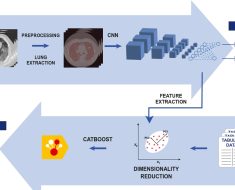Generative AI in Political Advertising: A Regulatory Dilemma for the 2024 Election

In the run-up to the 2024 presidential race, generative AI tools are dramatically reshaping the landscape of political campaigns. These sophisticated tools, capable of creating hyper-realistic fake images, videos, and audio clips, are being harnessed for political advertising on an unprecedented scale. The implications of this technological revolution are profound and, in the absence of robust regulation, potentially troubling.
The Rise of AI in Political Advertising
A recent spate of incidents has thrust the issue into the limelight. In one striking example, the campaign of Florida Governor Ron DeSantis released an attack ad against Donald Trump that utilized AI-generated images. The ad depicted Trump in the company of Dr. Anthony Fauci, a controversial figure in the world of American politics. Similarly, the Republican National Committee caused a stir when they issued an AI-generated ad that painted a dystopian picture of a reelected President Joe Biden. The ad, with its stark images of desolation and chaos, pushed the envelope of political messaging.
Regulation: A Race Against Time
While Europe has recently agreed upon comprehensive regulations on AI use, the situation in the U.S. is starkly different. Federal lawmakers are scrambling to pass legislation regulating political deepfakes ahead of the 2024 election. Bills are being drafted by members of both political parties, but none have yet seen the light of day. An executive order issued by President Biden in the fall encouraged the responsible development of AI, but did little to directly address the issue of deepfakes in political advertising.
Adding to the complexity of the situation, the Federal Election Commission (FEC) opened a public comment period for a petition to develop rules on misleading AI-generated content in political ads. This comment period concluded in October, but the FEC has yet to arrive at a decision.
State-Level Efforts and the Challenges Ahead
At the state level, lawmakers in California, Florida, Illinois, Kentucky, and Nebraska are making efforts to regulate the use of AI in political advertising. However, the challenges are manifold. The rapid evolution of AI technology, coupled with the difficulties in discerning deepfakes from authentic media, complicates the task of regulation. Moreover, the potential for misinformation and disinformation caused by AI-generated content brings with it a host of societal and political implications that extend far beyond the realm of campaign advertising.
As the 2024 election draws near, the question of how to regulate the use of generative AI in political advertising is becoming increasingly urgent. The answer could shape the future of political campaigning and the integrity of democratic processes in the digital age.



